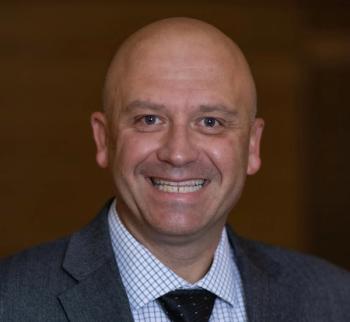
Joint Commission offers hospitals certification for sustainability
The voluntary program is designed to help hospitals curb their emissions and expand their work to combat climate change. Leaders also point to potential cost savings.
More hospitals are looking to improve their sustainability efforts, and now The Joint Commission is offering a certification program to help advance those initiatives.
The commission announced this week that it is offering a voluntary certification program to help hospitals improve their efforts to reduce pollution and waste.
“We want to work with the momentum of healthcare organizations leading the way in sustainability excellence – inspiring and guiding others that want to prioritize greener practices,” Jonathan B. Perlin, president and chief executive officer of The Joint Commission Enterprise, said in a statement.
“Together, we can collectively reduce the healthcare sector’s carbon footprint and reduce hospital visits, illnesses, premature deaths and medical costs from severe weather events and other climate impacts,” Perlin added.
Hospitals will be able to apply for the certification program beginning on Jan. 1, 2024. The Joint Commission has also launched a
The healthcare industry is responsible for
The Joint Commission shared messages from hospital leaders talking about the importance of reducing their environmental impact. They pointed to the value of improving the health of their communities as well as benefits to the bottom line, such as reduced costs and the potential to improve staff satisfaction and retention.
Frederick P. Cerise, president and chief executive officer of Parkland Health, talked about the system’s growing focus on sustainability in recent years.
“We recognize the role that climate plays in health,” Cerise said in a
“And, so, it's an area that makes sense for us to pay attention to, both from a public health perspective and from a health equity perspective.”
Ali Santore, executive vice president and chief advocacy and social responsibility officer at
“For us, this is fundamental, to both our values and our mission and who we are as an organization,” Santore said. “But from a business healthcare delivery perspective, this is also an imperative, because right now, across the healthcare system, we are being ineffective stewards of our resources.”
Mark Howell, director of policy and patient safety for the American Hospital Association, told Chief Healthcare Executive® in April that
“Over the last two years, the Biden administration has been pretty vocal about its expectations, not just for the health sector, but the entire economy to bring down emissions,” Howell said.
Speaking generally, Howell said in April that hospitals are at varying places in their sustainability efforts.
“Some hospitals are just getting started or haven't started at all,” Howell said. “Some are well down the path.”
Shelly L. Schlenker, CommonSpirit Health’s executive vice president and chief advocacy officer, suggests that hospitals that are just starting their sustainability efforts focus on small steps at first.
In a July 2022
“The business case is really about two things,” Schlenker said. “It’s about patient outcomes, but it’s also about saving money. In the initial years, there are a bunch of things you can do that actually reduce your expenses. So you get some of those wins under your belt for reducing expenses, and then people get the energy and buy-in for some of the bigger and more challenging endeavors.”




























































































